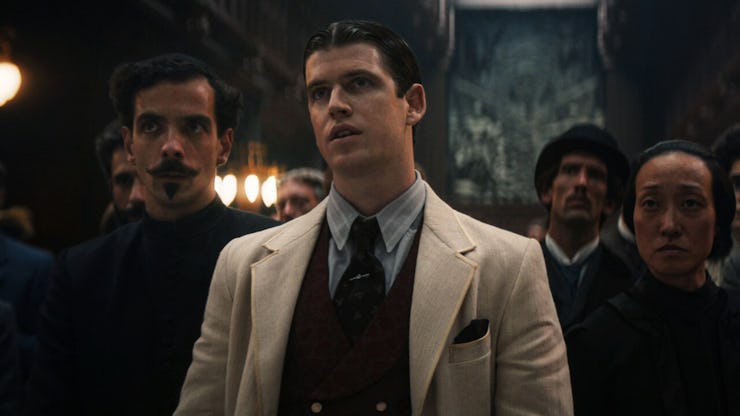1899's cancellation proves a sad truth about Netflix
With the mystery box show shuttered after a huge cliffhanger, is its genre dead?

Back in 2017, Baran Bo Odar and Jantje Friese changed streaming audiences’ perception of international TV with Dark, the mind-bending German time travel series. After three successful seasons, it seemed like its creators would have a blank check to create a new franchise.
Their follow-up was 1899, a multi-language maritime thriller and one of Netflix’s most anticipated shows. Like Dark, it was a slow-burn “mystery box” show, ending with a shocking reveal that was practically begging for a Season 2 renewal. But now the series has been unceremoniously canceled. What happened to prompt a flop from such proven talent? The issue isn’t the show itself, but the environment it was released into.
Dark was successful for several reasons. It took advantage of Netflix’s heavily emphasized binge model, and it was released in the last throes of “peak TV,” the era that brought a new reverence for television as an art form with the rise of shows like Mad Men and Breaking Bad. But perhaps most importantly, it used the season-long metaphysical mystery format most often associated with the smash hit Lost.
Like Lost, Dark and 1899 both told puzzling stories with unexplainable events, and many questions weren’t answered until the closing moments. Viewers tuned in until the bitter end to see just how everything would get resolved.
The setting wasn’t the only old-fashioned thing about 1899.
But the world Lost and Dark succeeded in is nothing like the streaming landscape of 2022. With the sheer amount of pop culture resting at a viewer’s fingertips, shows have to hook viewers in their first episode — or even their first minutes — to encourage more watching. Take recent Netflix successes like Squid Game and Wednesday. Each had strong pilots that quickly established the premise, while 1899 took a much more nuanced approach in teasing its “ghost ship” mystery.
This suggests an interesting hypothetical: If Dark were released today, would it succeed? The series relied so heavily on the intrigue of what the first German-language Netflix original would be about, as well as a crawling pace that never showed too many of its cards.
The mysterious events of 1899 just weren’t enough to hook viewers.
1899 remained on Netflix’s Top 10 for weeks after its release, so it was presumably watched by plenty of people. However, that achievement only reflects how many people started the series, not how many finished it. Netflix rarely releases statistics unless they’re bragging about their smash hits, so we’ll probably never know, but it’s likely only a fraction of those who hit play made it to the end and saw the shocking reveal that — spoilers! — the entire series took place on a spaceship.
1899 used the same epic puzzle and slow pacing as Dark, and in time it might have been just as good. But today’s cutthroat streaming marketplace makes it an inhospitable environment for a show that takes its time while the rest of pop culture is just a click away.
1899 and Dark are now streaming on Netflix.